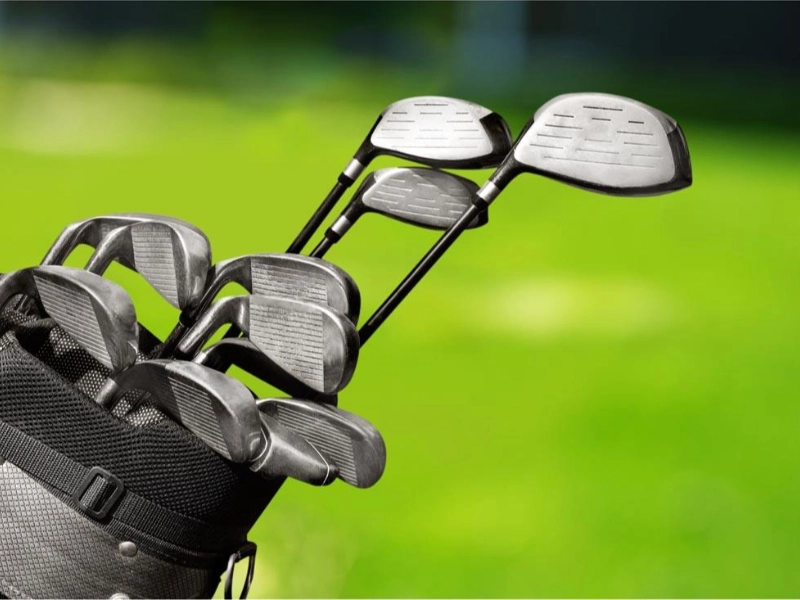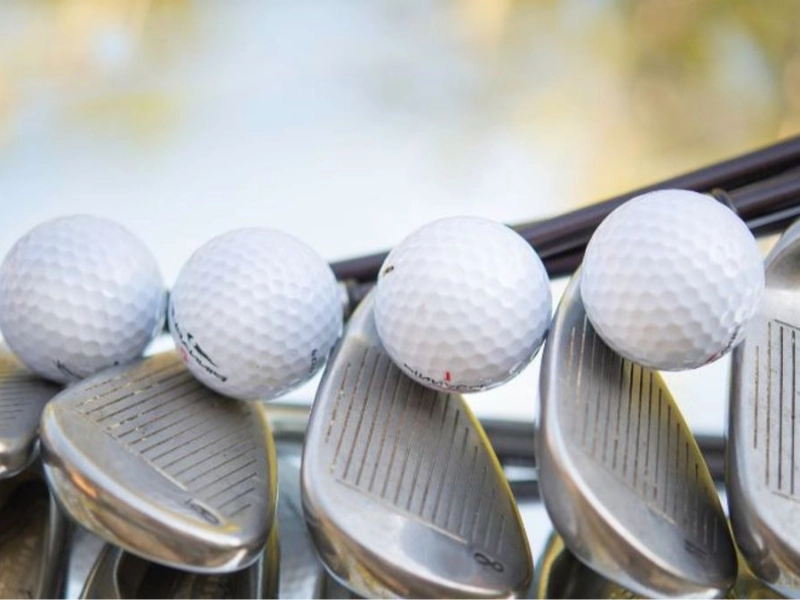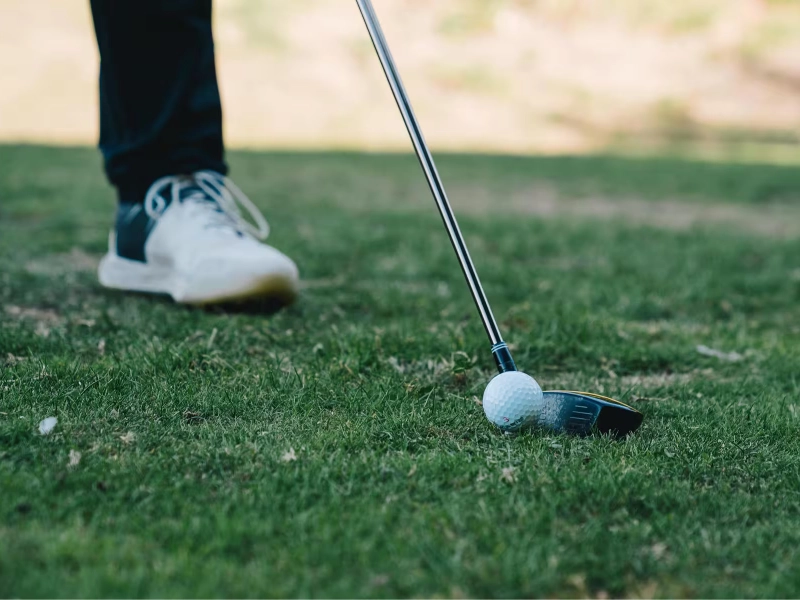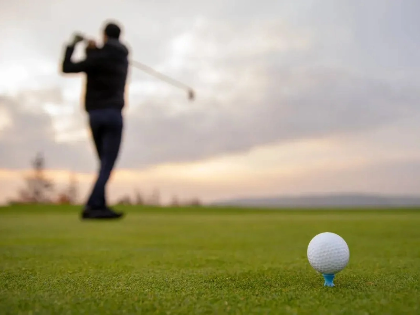Golf ClubForgiveness: What It Means And Why It Matters
Game improvement clubs, sometimes called as forgiving clubs, help to reduce the bad consequences of mishit shots. They frequently have low centre of gravity, perimeter weighting, and a bigger clubhead. Choosing golf equipment that suits your skill level and tastes depends much on considering forgiveness. Whether you give forgiveness top priority to reduce off-center misses or pursue feel for shot feedback, the ideal mix of traits will improve your game.
Definition of forgiveness

Why is forgiveness so valuable?
 Golfers who battle uneven swings and misjudgments of ball contact must learn to forgive. Golfers who practise forgiveness make shots move straighter and farther, therefore reducing the negative consequences of these errors. To increase a launch angle, a forgiving driver can, for instance, distribute extra weight low and towards the club head's periphery. More loft and a bigger face made possible by this design also help to make getting the ball into the air simpler.
Still, forgiving is no panacea. Bad swings or rare missed ball can still occur even among seasoned golfers. This is why choosing golf equipment should take into account the harmony between forgiveness and feel. While beginners or those focused on consistency might want forgiveness, skilled players seeking accuracy and feedback could gravitate towards feel-centric clubs. In either case, a pleasant and demanding game requires both kinds of golf clubs. Accept your challenges and grow from your failures; soon you will be turning those "Good Enough" photos into Great ones.
Golfers who battle uneven swings and misjudgments of ball contact must learn to forgive. Golfers who practise forgiveness make shots move straighter and farther, therefore reducing the negative consequences of these errors. To increase a launch angle, a forgiving driver can, for instance, distribute extra weight low and towards the club head's periphery. More loft and a bigger face made possible by this design also help to make getting the ball into the air simpler.
Still, forgiving is no panacea. Bad swings or rare missed ball can still occur even among seasoned golfers. This is why choosing golf equipment should take into account the harmony between forgiveness and feel. While beginners or those focused on consistency might want forgiveness, skilled players seeking accuracy and feedback could gravitate towards feel-centric clubs. In either case, a pleasant and demanding game requires both kinds of golf clubs. Accept your challenges and grow from your failures; soon you will be turning those "Good Enough" photos into Great ones.
How Does Your Game Change with Forgiveness?
 Specific features in forgiving clubs help to reduce the effects of bad ball contact or erratic swings. These design elements provide golfers more freedom in their approach and help to alleviate some of the negative effects of off-center misses by widening the sweet spot of the club head, dispersing weight to improve stability, and lowering the centre of gravity for more responsiveness.
These forgiving designs also enable players to strike their goal more regularly by helping them to attain more accurate results. More often than a less-forging club, a forgiving iron will keep ball speed and trajectory on off-center strikes.
Golfers should be aware, though, that forgiveness cannot totally erase poor shots. That requires just better strokes and appropriate ball contact. Like your wife allowing you to go a few extra yards over on that one divot, forgiveness merely makes those awful misses somewhat less disastrous. And that's a benefit as well.
Specific features in forgiving clubs help to reduce the effects of bad ball contact or erratic swings. These design elements provide golfers more freedom in their approach and help to alleviate some of the negative effects of off-center misses by widening the sweet spot of the club head, dispersing weight to improve stability, and lowering the centre of gravity for more responsiveness.
These forgiving designs also enable players to strike their goal more regularly by helping them to attain more accurate results. More often than a less-forging club, a forgiving iron will keep ball speed and trajectory on off-center strikes.
Golfers should be aware, though, that forgiveness cannot totally erase poor shots. That requires just better strokes and appropriate ball contact. Like your wife allowing you to go a few extra yards over on that one divot, forgiveness merely makes those awful misses somewhat less disastrous. And that's a benefit as well.
Why Would One Want To forgive?
 By helping you to control your worst swings, forgiving clubs can keep you on the course and chasing birdies. They will not, however, cause negative swings to vanish. That can only be achieved with a decent practice program and commitment to swing improvement.
Still, forgiveness reduces the detrimental effect of little mistakes on your shot, so helping you to avoid a shank or slice. Many novices and higher handicap golfers so prefer forgiving clubs over a more conventional set for this reason.
As a golfer, you should try to strike a balance between feel and forgiveness in choosing your equipment. Clubs with great feel send exact sensations at impact to guide your shot shape and offer helpful feedback for swing development. By knowing your priorities and degree of ability, you can identify a set that balances forgiveness for misses with priceless feel for accuracy.
By helping you to control your worst swings, forgiving clubs can keep you on the course and chasing birdies. They will not, however, cause negative swings to vanish. That can only be achieved with a decent practice program and commitment to swing improvement.
Still, forgiveness reduces the detrimental effect of little mistakes on your shot, so helping you to avoid a shank or slice. Many novices and higher handicap golfers so prefer forgiving clubs over a more conventional set for this reason.
As a golfer, you should try to strike a balance between feel and forgiveness in choosing your equipment. Clubs with great feel send exact sensations at impact to guide your shot shape and offer helpful feedback for swing development. By knowing your priorities and degree of ability, you can identify a set that balances forgiveness for misses with priceless feel for accuracy.







